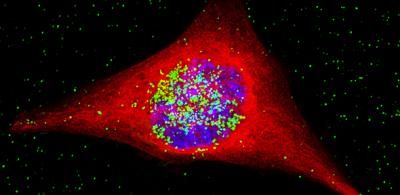Discovery provides new drug targets for malaria cure
Advertisement
Researchers are a step closer to developing new antimalarial drugs after discovering the normal function of a set of proteins related to the malaria parasite protein, which causes resistance to the front-line drug chloroquine. The findings also provide a novel tool for studying the malarial chloroquine-resistance factor.
The study examined transporter proteins which are known to move compounds around the cell. The genes for these proteins are present in plants as well as the malaria parasite Plasmodium falciparum (known as clt and PfCRT respectively), so researchers used the model plant Arabidopsis to reveal that these proteins normally transport glutathione, an antioxidant which protects the cell from stresses. In the malaria parasite (a single cell organism), this type of transporter protein has mutated so that it no longer functions normally, enabling it to remove the drug chloroquine from its cell and survive.
The work was led by Dr Spencer Maughan who began researching these genes in Prof. Chris Cobbett's lab in the Department of Genetics at the University of Melbourne and involved an international team from the Universities of Melbourne, Cambridge (UK), Heidelberg (Germany), Liverpool (UK) and Rothamsted Research (UK). It will be published in PNAS.
Most read news
Other news from the department science

Get the life science industry in your inbox
By submitting this form you agree that LUMITOS AG will send you the newsletter(s) selected above by email. Your data will not be passed on to third parties. Your data will be stored and processed in accordance with our data protection regulations. LUMITOS may contact you by email for the purpose of advertising or market and opinion surveys. You can revoke your consent at any time without giving reasons to LUMITOS AG, Ernst-Augustin-Str. 2, 12489 Berlin, Germany or by e-mail at revoke@lumitos.com with effect for the future. In addition, each email contains a link to unsubscribe from the corresponding newsletter.



























































